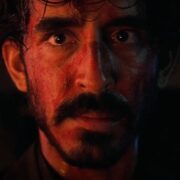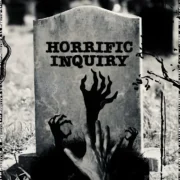HEAL: A Fascinating Look Into The Benefits Of Eastern Medicine
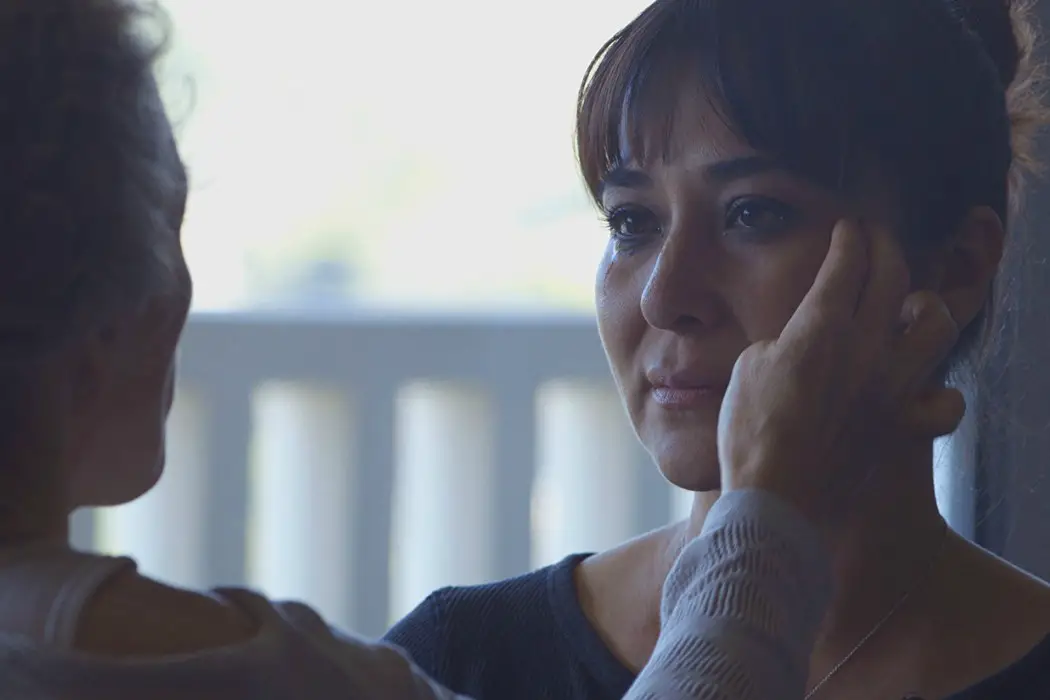
Alex Arabian is a freelance film journalist and filmmaker. His…
Heal reintroduces a topic and area of medicine that’s been around for thousands of years, since the Buddha himself was walking this green earth: the mind-body connection. As such, this material has been covered before in virtually all mediums including film (documentaries such as What the #$*! Do We (K)now!? and You Can Heal Your Life). Don’t let that deter you from viewing this insightful documentary.
Audiences, particularly younger ones, likely haven’t seen such a plethora of concrete examples of success stories of human beings who have quite literally healed themselves with their minds all in a 107-minute documentary. Though a tad overlong, it is through interviews and both current and retrospective clips of these survivors and various experts in Heal that maintain an interest and a level of tangible, infectious mysticism in the viewer.
Combined with several notable interviews from physicians, psychologists, scientists, and spiritual leaders including input from world-renowned alternative medicine advocate Dr. Deepak Chopra, author of more than 80 books on health and spirituality, American New Thought minister Michael Beckwith, New Age author Gregg Braden, famed neuroscientist and chiropractor Joseph Dispenza, biologist and author of Biology of Belief, Bruce Lipton, psychiatrist Kelly Brogan, and many others, Heal provides credibility in its subject matter.
Producer Adam Schomer (The Highest Pass), who spoke in depth in person after my screening of Heal about the film and its subjects, and producer, writer, director, and narrator Kelly Noonan have compiled a thoroughly watchable and empowering documentary that, if the viewer has a open mind, can truly influence perspective in its audiences around the world. The notion that the mind can heal the body has been muddled by centuries of technological and pharmaceutical medical advancement. While both of these areas of progress in healthcare are integral, Heal makes a point that modern society has forgotten the importance of the mind in medical treatment, and it makes its point with great effectiveness.
What Exactly Is The Mind-Body Connection?
One aspect that stood out to me in Heal is minister Michael Beckwith’s statement that “tonic thoughts produce tonic chemicals; toxic thoughts produce toxic chemicals.” Using one example, our brains are wired for a fight-or-flight response dating back to our primitive days before we discovered fire and had to fight for our food everyday. Our brains would produce cortisol, which would allow us to make appropriate decisions in a time of danger if, say, a wholly mammoth was chasing us.
Today, that cortisol can be released in the brain even in the most comparatively benign stressful situations. Even falling into a cycle of overthinking can cause excessive cortisol secretion. Beckwith has his own church, Agape International Spiritual Center, in Culver City. This New Age spiritual center has more than 8,000 followers, all who follow the firm belief that illness is originated in the mind.

Of the many instances of people inexplicably healing themselves throughout the documentary, Heal explores two of the more famous examples on record of the past 50 years, Joseph Dispenza and motivational speaker Anita Moorjani. Throughout these testimonies, Noonan remains a student onscreen, listening to the professionals in the respective fields that she interviews, creating a fluid continuity. Dispenza was a triathlete in the 1980s when he fractured six vertebrae by falling over his bike and subsequently being run over by a truck. His prognosis was paralysis.
Refusing a surgery that four doctors recommended, Dispenza became entranced by one thought: “The power that made the body, heals the body.” Over the next 10 weeks, he sat in his home and for two hours, twice a day, he would close his eyes and imagine himself healing by picturing his vertebrae realigning in the correct stature. He called it a period of “the dark night of the soul.” After 11 weeks, he was walking and working again. If these case studies weren’t thoroughly documented and confirmed by multiple sources, I’d be skeptical of their veracity.
Moorjani’s story is equally as impressive and, for lack of a better word, dumbfounding. She battled cancer for four years until it eventually spread to several organs and she was hospitalized in 2006. The doctors told her she had weeks to live. Shortly after, she slipped into a coma. She experienced what she refers to as heaven, though it was not a destination, it was a state of being. When she awoke from her coma, her cancer healed, and she remains in remission to this day. So, what can we has human beings deduce from this?
Believe The Diagnosis; Don’t Believe The Prognosis
Receiving unfortunate news from an authority figure such as a medical professional can be discouraging and, at times, horrifying. The diagnosis is bad enough, but the prognosis can be even worse to absorb for the patient. The prognosis is a statement usually explaining to the patient diagnosed with the given illness or disease essentially how long they can expect to live or experience a decent quality of life before the given illness or disease takes over.
In Heal, Dr. Chopra emphasizes that patients should always believe the diagnosis, but not the prognosis. Of course, that’s easier said than done, which is where the power of the mind comes into play. It is up to the patient and the support around them to change their outlook and stay positive and determined to overcome the seeming permanence of their prognosis, which is usually based on an average of thousands, sometimes millions of people.
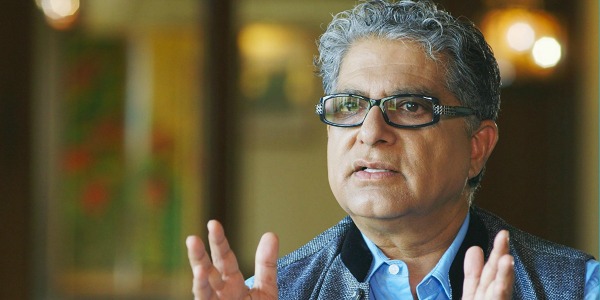
Dianne Porchia, MA, DMBM is well-versed in the mind-body connection, and has the unique ability to reduce the excessive chatter in her patients’ mind that inhibits healing in order to strike the heart-soul connection. She does this using a holistic, somatic approach to free deep-rooted emotional pain, trauma, and inhibiting beliefs.
Heal focuses on one of her more notable patients, Elizabeth, who was diagnosed with stage IV cancer. Elizabeth worked with Porchia during her most difficult period of chemotherapy, and through holistic and spiritual practices, Elizabeth was able to change her view of her chemotherapy treatment as a friend, of sorts, instead of a poison. Eventually, Elizabeth was essentially cured with No Evidence of Disease (NED), and she attributes a significant portion of her remission to Elizabeth’s practices. Elizabeth’s case is one of the more strong examples of not believing the prognosis and the power of the mind to change the outlook of a diagnosis.
Noonan’s interest in the subject matter is infectious, and the viewer can feel the passion that was put into this documentary in every frame. Noonan interviews each person who has undergone an illness or disease or is currently struggling with one with empathy and understanding. Her interest in meditation makes for a solid segue into a more spiritual third act in Heal.
Meditation & Spirituality
The best way to align the mind and the body in harmony is through meditation. Though meditation is primarily seen in Buddhism, it has also been used in other religions, in some form or another. Dr. Chopra discusses several types of meditation, ranging from Zen to Transcendental. These various forms of meditation are ways to calm the mind and simply focus on the present.
If we analyze our minds objectively, most of us will find that our thoughts are racing constantly, either thinking about the past or worrying about the future, or sometimes both. This causes stress, which can lead to or perpetuate illness or disease. Heal doesn’t discredit the validity of external, genetic, and environmental factors, of course, but rather, it reminds us that the mind can speed up any process of ailment that one may be predisposed to. At times, Heal falls victim to breezing by certain topics, and it rushes this final act a bit. There are countless books on meditation, mindfulness, and spirituality, but it may have been more engaging to focus more on one of these subjects more meticulously.
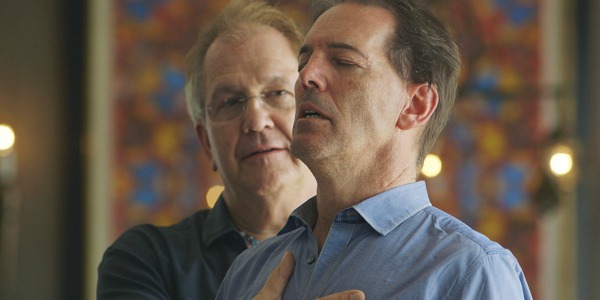
Heal asks a legitimate question that cleverly juxtaposes with the concept of the placebo effect: can the belief in a higher power and the practice of prayer mend someone that is damaged? Is this an example of the placebo effect, where, in a clinical trial, patients are given a sugar pill and told that it is something therapeutic and they actually believe that it works, and thus improve physically? Or rather, is this something intangible, spiritual? Heal argues that belief in a higher power has been diminished as our society has become more close-minded and rigid in its beliefs, and it certainly seems that trend is apparent in the world today.
Take Anthony William, for example, a “medical medium,” who has the ability to “read” people’s conditions from a source he calls “spirit,” and, surprisingly, his diagnoses are startlingly accurate, hence his worldwide following. Some of these accounts are hard to believe, but the results make it even harder to dispute. If anything, Heal asks its audience to keep an open mind.
Conclusion: Heal Is Effective Despite Its Length
At times, Heal may seem redundant to the viewer, but it never fails to maintain interest. Schomer and Noonan have crafted a thoughtful documentary that examines the importance of eastern medicine in our modern society and healthcare system, particularly in western medicine. Of course, it in no way discredits western medicine, as medications, surgery, and various other treatments are integral to recovery, however, there is always a risk of overprescription or misdiagnoses.
Documentaries that cover “mystical” or spiritual topics can risk becoming preachy, however, Heal doesn’t fall into this category. Rather, it is inspirational. It drags at times and may overstay its welcome, but viewers will likely be satisfied by the time the credits roll, and hopefully inspired. Noonan is a strong champion of Heal’s subject matter, and advocates for the various topics discussed with conviction, creating a consistency throughout the documentary, a consistency that is amplified by Michael Mollura’s subtly powerful score. Heal is a documentary for everyone, whether one considers themselves an optimist, pessimist, believer in a higher power, atheist, or otherwise.
Do you believe in the power of the mind-body connection? Have you ever practiced meditation? What are you experiences with eastern medicine? Tell us your thoughts in the comments below!
Heal opened to limited release in the U.S. on October 20, 2017, and due to popular demand, it is playing in select cities worldwide. For information on all screenings, see here.
And keep an eye out for digital streaming release on December 5!
Does content like this matter to you?
Become a Member and support film journalism. Unlock access to all of Film Inquiry`s great articles. Join a community of like-minded readers who are passionate about cinema - get access to our private members Network, give back to independent filmmakers, and more.
Alex Arabian is a freelance film journalist and filmmaker. His work has been featured in the San Francisco Examiner, The Playlist, Awards Circuit, and Pop Matters. His favorite film is Edward Scissorhands. Check out more of his work on makingacinephile.com!










